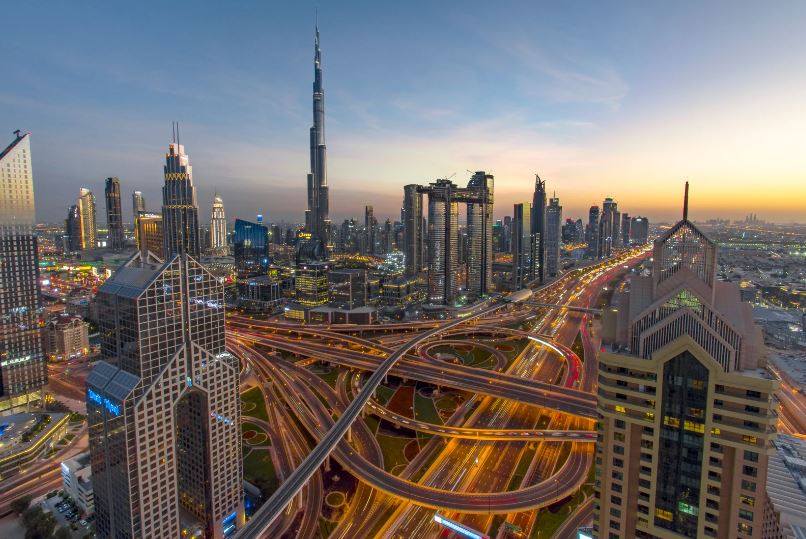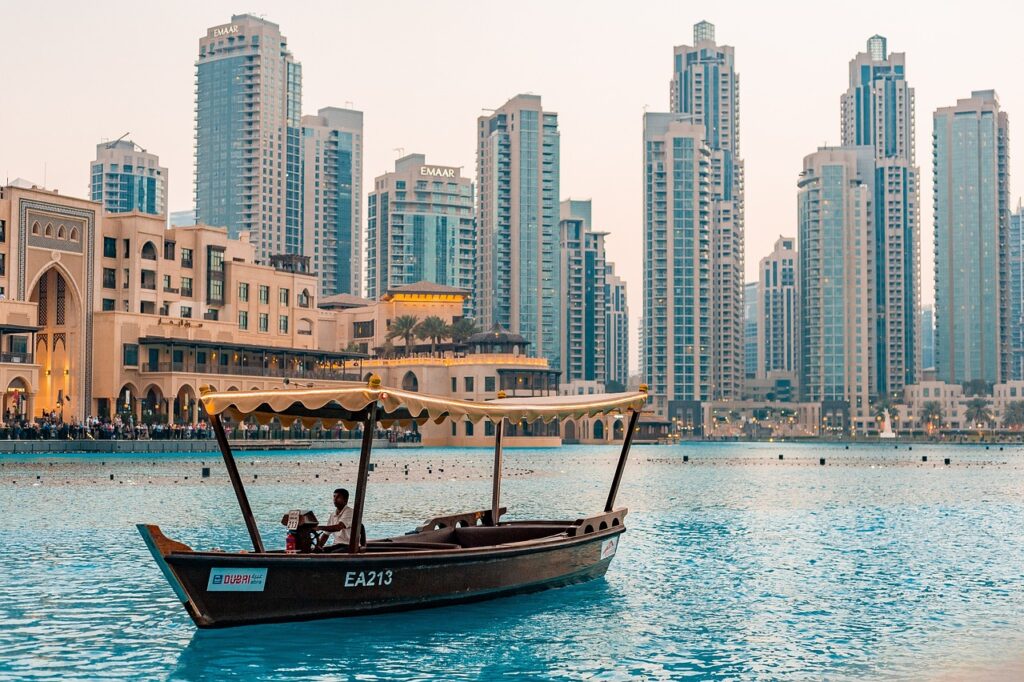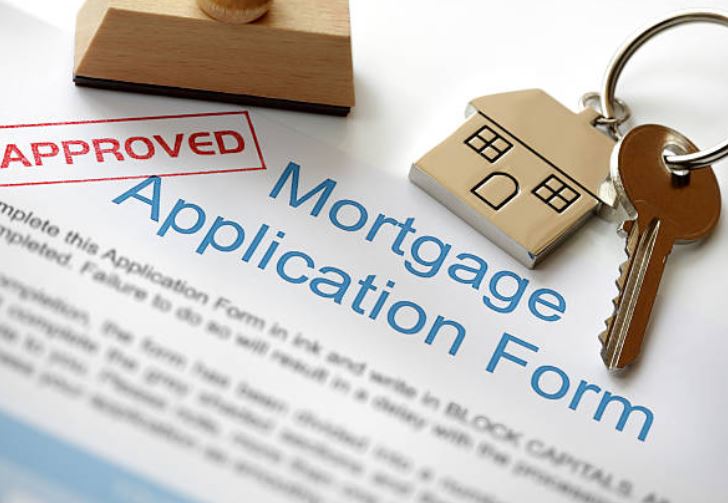
The Fearless Girl’s Guide to buying property in Dubai
Fearless Girls of Dubai, are you ready with your iced lattes and notebooks? Take a seat in your favourite sun lounger and enjoy the Fearless Girl Finance comprehensive guide to buying property in Dubai.
It’s been said that everything you need to know about a person is in how they react to the word Dubai. If you see someone’s lip curl into a sneer or a superior tone creeps into their voice, then I’m sorry to tell you that you’re in the company of someone who will talk down to you without having the slightest clue what the city is really like (and you can probably expect this to be a common feature of their conversational skills, so feel free to BDMO).
Nowhere is perfect, but there’s a reason millions of people have flocked to this oasis of glass and steel on the edge of a burnt orange desert. It’s safe for women at every hour of the day, clean, filled with sociable expats and hums with energy 24/7. Prefer something wilder and laid back? In just thirty minutes, you can escape the skyscrapers and enjoy scuba diving with sharks and turtles, hike the rugged mountains to swim in a crystal clear lagoon or stargaze in the Arabian desert, surrounded by local wildlife.
So you’re thinking of buying property in Dubai?
Whether you’ve made Dubai your permanent residence or you want to make the city your home away from home, demand for property is booming. Here’s everything you need to know about buying property in Dubai.

1. The developer matters
Choosing a reputable developer is crucial for picking the right property in Dubai. The big-name developers will build entire communities, including places of worship, ‘souks’ or small commercial centres with salons, grocery stores and pharmacies for your essential needs and will typically include some common areas for walking and socialising.
Whether or not you want to buy in a ‘development community’ (for example, Town Square for reasonably priced villas or Dubai Hills for beautifully finished apartments), make sure you do your research on maintenance schedules and policies around renovations, as each developer will have different policies.
2. You will need to check whether the area is freehold or leasehold
Some locations in Dubai, such as Umm Suqeim, will allow property purchases only if you are a GCC National. This is known as a ‘non-freehold’ zone. ‘Freehold’ areas are those which are open for purchase by any nationality, and include popular areas like JLT, the Greens, Arabian Ranches and Business Bay.
Be sure to check whether your property falls under ‘freehold’ or ‘leasehold’ which would mean that you lease the property for a given number of years, with 99 years being the maximum. After this time, it will be returned to the developer.
This has its pros and cons – a major advantage is that any repairs will usually be carried out by the developer, although there are clear disadvantages – one being that if you die, your property will pass back to the developer, instead of going to loved ones as part of your legacy (sorry to be morbid, but Fearless Girls evaluate every outcome when it comes to fearless finances). You can easily check whether your chosen location is freehold or leasehold by contacting the Dubai Land Department.
3. The market moves fast
If you want to buy property in Dubai and your finances are ready to roll, the whole process can take as little as two weeks. To keep the process as seamless as possible, once you have your deposit ready, you should apply for mortgage pre-approval. Do this before you start viewing properties.
You can do this by contacting different banks and setting up meetings with their in-house mortgage service, or you can go through a mortgage advisor. They will contact the banks for you and negotiate the best rate based on your budget, although there is obviously a fee for this. Having mortgage pre-approval means that when you find ‘your place’ you won’t have to endure the agonising admin wait while someone else (who probably read this article to prepare) jumps in with an offer.

4. Know your non-negotiables
Real estate agents are on commission and that commission comes out of the amount of money they can sell a property for. It is in their best interest to show you something that stretches your budget, so make sure you set your non-negotiables and be clear that you don’t want to view anything that doesn’t meet these standards. Obviously, you will need to be reasonable with this – you cannot ask for a seafront 4-bedroom villa on a budget of 500,000 AED.
But you can be clear that you want a specific area, aspect (i.e. east-facing to catch the sunrise), developer, or for it to be vacant on transfer (more on this in the next point). The agent wants to make a sale so ask them to upfront about how many of your non-negotiables they can get you. If you see something that meets all of your non-negotiables, be prepared to make an offer quickly – because in all likelihood, it probably meets someone else’s non-negotiables too.
5. Buying a property doesn’t always mean that you get to live in it
Tenants are protected by the Real Estate Regulatory Authority, and by law they must be given 12 months notice to vacate the property when the previous owner decides to sell. If you are buying a tenanted property, the tenant absolutely does not have to move out just because you want to move in. In fact, they have the right to approach you to negotiate a new 12-month contract from the date the sale goes through.
In some cases, this is an offer worth taking – you may be able to make a little money by charging them rent while you rent in a lower-priced area. But if you know you want a property to live in straightaway, insist that your agent only shows you properties which are vacant on transfer.
6. Understand the fees
There are a lot of organisations involved in getting that property deed transferred into your name, and each will require a different fee. As the time of writing, these are the fees that need to be paid when buying property in Dubai:
- Deposit: 25% for a first property for any nationality other than Emirati.
- Dubai Land Department fee: 4% of the total property price plus an admin fee of 580 dirham
- Registration fee: for properties valued under 500,000 the charge is 2000 + 5% VAT. For properties valued at over 500,000, the charge is 4000 + 5% VAT.
- Real estate agency fee: 2% of the purchase price + 5% VAT.
- Bank mortgage arrangement fee: 1% of the mortgage amount + 5% VAT.
- Property valuation fee (this is carried out by the bank, who will not approve the final mortgage without a valuation): between 2,500 – 4,000 + 5% VAT.
As an example, if you wanted to buy a property for 1 million dirham, you would pay:
- Deposit: 250,000
- DLD fee: 40,580
- Registration fee: 4,200
- Agency fee: 21,000
- Bank mortgage arrangement fee: this would be 1% of 750,000 plus VAT so 7,875
- Valuation fee: assume 4,000 to be safe
In this scenario, the total amount of money you need to buy your first property is a whopping 327,655.
If this has made you faint with despair, there are options. First, consider whether buying property in Dubai is the right decision for you. Second, you can have all of the fees except the deposit absorbed into your mortgage. The bank may charge a slightly higher fee for this but that would also be covered by the mortgage.
I have to make a Fearless Girl Finance disclaimer here – I’m sure all Dubai girlies have heard of someone who took out a separate loan from a different bank to use as their deposit and paid it back at the same time as their mortgage. Under UAE law, this is illegal. It is also pretty terrible financial behaviour – spinning plates of debt is not a healthy way to manage your finances. If you have to do this, you CANNOT afford to buy property. Rent and invest your money in ETFs instead.
7. The amount you have to pay as a deposit can change after the bank valuation of your property.
After the selling price has been agreed, the bank will step in to make an evaluation of your property. This is a step the banks take to protect themselves. A representative from the bank will evaluate your property based on the local housing market and any structural damage – basically, how much the bank thinks it will be able to sell the property for should you default on the loan.
If the bank values your property higher than the price agreed between you and the seller – happy days, you got a great deal.
If the bank values your property lower than the price agreed between you and the seller, the mortgage they give you will be 75% of their valuation. However, you cannot reduce the offer you made to the seller, so you will need to be prepared to make up the shortfall. In case this sounds insane to you, take a look at the example below. It will still sound insane, but hopefully the figures will be clearer.
If you agree a price of 1 million dirham with the seller, and the bank values the property at 1.1 million, they will issue 75% of the agreed price so your deposit will stay at 250,000.
However, if the bank values your property at 900,000 dirham, they will issue a mortgage of 75% of 900,000 or 675,000. The seller still needs to receive 1 million dirham so guess what? The amount you have to pay just jumped from 250,000 to 325,000. If you can’t pay and have to back out of the sale, you will have to pay 10% of the agreed price to the seller for wasting their time.
Try not to lose sleep on this step – a reputable agent will not allow you to make an offer higher than the property is worth.

8. The bank will charge you insurance each month
Your bank will add an additional fee to your mortgage each month as home insurance. This means that if you die (sorry again – with life decisions, we also have to consider death), the bank will be able to recoup the mortgage from the insurance company.
Most banks will insist that you pay the fee to the bank and they pay the insurance company of their choice. This is sneaky and awful, but it is non-negotiable. Just like with shipping charges on your ASOS order, it would be psychologically better if they absorbed the cost into the mortgage payment and pretended they gave you insurance for free, but that’s not how they roll, so you’ll have to suck it up and budget for an additional charge each month.
9.You are not automatically eligible for a Golden Visa
The elusive Golden Visa, a 10-year visa which releases you from the bonds of modern slavery (ahem, paid employment through which you are sponsored for your visa) is only applicable if your property purchase is more than 2 million dirham. The property can be mortgaged, you will just need to submit a letter of approval from your mortgage provider.
So there you have it! The Fearless Girl Finance comprehensive guide to buying property in Dubai. If you made it to the end without going voluntarily blind, girl, you are a trouper and I raise my everlasting coconut cocktail to you. Now you are able to evaluate whether buying property in Dubai is the right choice for you. Because at the end of the day, fearless finances mean fearless choices.
Are you considering buying property in Dubai? Let us know in the comments below or tag us on Instagram @fearlessgirlfinance_




Add A Comment